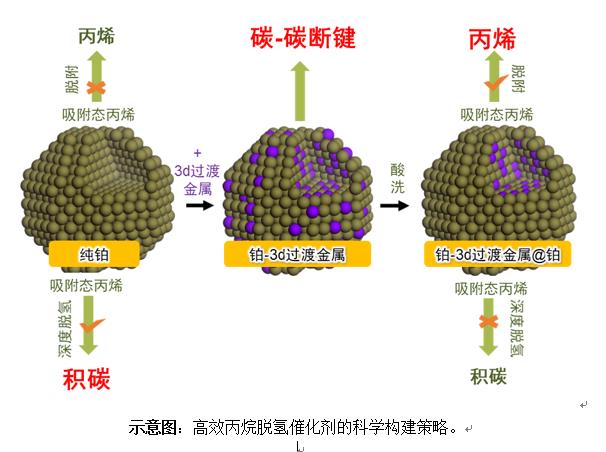Recently, the Energy and Chemical Engineering Team at Tianjin University (TJU) successfully developed a high-efficiency Pt-based catalyst, which will significantly improve the production efficiency of propylene.

Propylene is a chemical raw material and plays a huge role in industrial production. It is the basic raw material for the manufacture of “three major synthetic materials”; plastics, synthetic rubber and synthetic fibers, which have important value in the fields of textiles, pharmaceuticals, medical and military. Traditional production technology has been unable to meet the growing demand for propylene in the world's major economies. In 2017, China’s net import of propylene reached 3.09 million tons, and the market price has also increased year by year. At present, the “Propane Dehydrogenation”(PDH) is the fastest growing and most promising new propylene production technology in the market, in which the Pt-based catalyst is the key for this method. The existing 12 sets of PDH propylene production lines have been imported from abroad at high prices and the catalysts are dependent on imports in China.
“Whoever masters a more efficient catalyst can master the future of the olefins industry,” according to Professor Gong Jinlong, Head of the Energy and Chemical Engineering Team at TJU. The Pt-based catalyst has been widely used in the PDH and the principle is based on “Catalytic Dehydrogenation” of metals like Platinum to extract and produce propylene.
The high-efficiency Pt-based catalyst developed by the Energy and Chemical Engineering Team has two new advantages. First, it is “more pure”. The metal impurities of the additive are removed by high temperature reduction and acid pickling, so that the catalyst forms a pure platinum-covered core surface; Second, it is “stronger”. By changing the electronic state of platinum on the surface, it greatly enhances the catalytic properties of platinum atoms, thus creating the possibility of greatly improving the efficiency of propylene production in industry.
It is understood that this achievement demonstrates the important value of Structure Activity Relationship (SAR) for catalyst research from the perspective of basic research, and opens up new ideas for the application of Pt-based catalysts, which is of great significance to China’s chemical production industry. The relevant research results were published in the latest issue of Science Advances.
By: Guo Jiaxin
Editors: Sun Xiaofang and Ross Colquhoun






